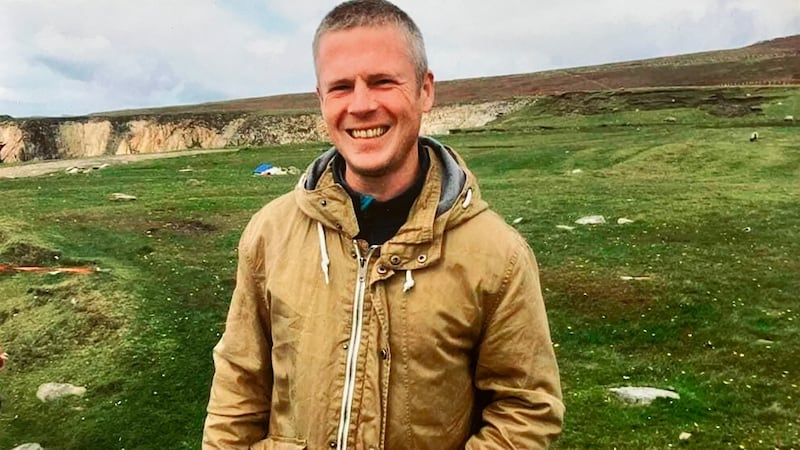It was impossible not to think of Cormac McAnallen when the awful news came through last Saturday morning that Dillon Quirke had died suddenly, playing a championship match with his club, Clonoulty Rossmore, against Kilruane McDonaghs in Semple Stadium.
Separated by 18 years or so the two deaths had something in common: two high-profile young intercounty players, who had achieved a great deal of sporting success in their short lives — both 24 — and also entrusted with leadership responsibilities despite their youth.
Cormac McAnallen had just been made captain of All-Ireland champions Tyrone. His taking over from Peter Canavan signalled the passing of the baton from one generation to the next. Had he lived, there’s no reason not to assume that he would have lifted Sam Maguire on at least the two further occasions that decade it was won by the county.
Dillon Quirke was captaining his club in Thurles and on RTÉ’s Saturday Sport, Liam Sheedy, who first brought him into the Tipperary senior panel in 2020, said that even as a newcomer he had been included in the leadership group.
READ MORE
Adding to the poignancy of the comparison, Brendan McAnallen, Cormac’s father, died last week. At the time of the funeral in 2004 he was a stoic figure, greeting people but distraught at the turn of events in his family’s life. There was though a phrase that comforted him, framed as consolation by then President Mary McAleese about his lost son: “He only brought home good news.”
There was the same sense of filial connection about Dillon Quirke, captured on TG4 in 2018 after the club had won a first county title in 25 years: “I never thought in my wildest dreams — the last time we won it, my father was playing.”
By then he already had two All-Irelands, a minor and an Under-21 to bring home and match Dan Quirke’s Under-21 medal from 1989 when his father scored 3-2 in the defeat of Offaly.
It’s truly a tragic story now. But we shouldn’t forget what Dillon achieved, because he achieved so much for 24
How do families and communities cope when such premature deaths visit them — when you consider the impact the news has on the country at large? Particularly when there is surely nothing quite as indestructible as a young sportsperson. The same jolting sense of shock shook the room when the news came through on last Saturday morning’s radio bulletins. It’s unnatural to hear that someone the same age as your youngest child is gone, let alone in one swift, lethal, unforgiving moment.
No one really wants to “celebrate” — in that dauntingly final context — the life of a 24-year old but once the dreadful reality that the bright and promising future came to a full stop in Semple Stadium sinks in there is amid the sadness a life of some achievement.
In his conversations with West Tipperary GAA people, Patrick O’Sullivan in the Irish Examiner elicited this bracing acceptance from one neighbour: “It’s truly a tragic story now. But we shouldn’t forget what Dillon achieved, because he achieved so much for 24. He won two All-Irelands with Tipperary, minor and Under-21. He won three county finals with Clonoulty, at Under-16, Under-21 and senior.
“There should have been plenty more to come, but that doesn’t mean Dillon hadn’t an awful lot already done. He had.”
John McCormack of Knockavilla-Donaskeigh Kickhams wistfully speculated on the potential of that lost future.
“Dillon seemed to have nailed down a spot with the Tipp seniors this season. Tipp hadn’t a good campaign as a team, fair enough, but I think Dillon was coming into his own with them. I’m sure Liam Cahill, as our new manager, had plenty of plans for him. I know Liam admired Dillon both as a person and as a hurler.”
They have lost a long-term champion — one of their own who had made it to the top
That he was coming into his own is indisputable. A very versatile hurler, Dillon Quirke had settled under last season’s manager Colm Bonnar into the role of wing back where his skill and intuition as a defender blended with the counterattacking capability of the forward he was with his club and had been in the initial stages of his senior career.
If the epicentre is his family, grief spreads concentrically through the Clonoulty Rossmore club and West Tipperary. They have lost a long-term champion — one of their own who had made it to the top.
In May 1950, the country, especially the world of Gaelic games, was stunned to learn that PJ Duke had died at the age of 25. An established member of the Cavan football team, he had won two All-Ireland medals, including in the famous Polo Grounds final of 1947 in New York.
One of the celebrated half-back line with John Joe O’Reilly — who led his team-mate’s cortege through crowded streets in Dublin but who would be dead himself little more than two years later — and Simon Deignan, Duke was a dentistry student and Sigerson Cup star at UCD when on May 1st, he succumbed suddenly to tuberculosis.
Pádraig Purcell, the distinguished GAA correspondent of the Irish Press and also a poet and novelist, later commemorated the passing.
The banshee keens by Breifne’s border,
Beyond Lough Sheelin in the morning breeze,
By lake and river the rushes quiver,
In silent sorrow for one so young.
For Dillon Quirke’s parents, Dan and Hazel, sisters Shannon and Kellie, his uncle, Declan Ryan who was the Clonoulty manager and all those in his family and community, there is nothing left but heartfelt sympathies. Pitiful a counterweight as that may be for such unbearable sorrow.
















